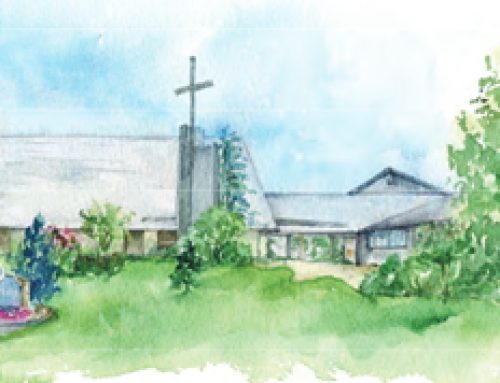FROM THE PASTOR’S DESK
Dear Parishioners,
“I could never forgive him after what he did to me.” “You want me to do what? Forgive her? No way!” “I’m supposed to just let them get away with treating me like that? Not going to happen!”
As a priest for almost 10 years, I have heard people say things like this countless times. My response is always the same: “Holding on to hurts is more toxic to your heart and soul than to the one who hurt you.” Forgiving someone who hurt you is never easy, but working through the process removes a major obstacle on the path of wellness.
Some people who seek counseling from me are often surprised when I ask if they have forgiven someone who hurt them. They fail to see the link between their mental distress and unresolved conflict with others. But my experience has erased all doubt that hanging on to offenses and emotional wounds is an effective (and unfortunate) way to punish yourself.
Forgiveness can be a loaded word for many people. It carries conflicting religious overtones or hints of pop culture sentimentalism many of us have learned to distrust.
The sticking point for most people is a burning desire for justice. They can’t bear to let someone “get away with” a hurtful offense. But ignoring or overlooking someone’s misdeeds is not the essence of forgiveness at all. Rather, it’s about your own experience of life’s inevitable conflicts and whether you will go on reliving the pain they caused or let go and move on. In short, forgiveness brings freedom for you.
Forgiveness isn’t about letting someone off the hook. This misunderstanding lies in the belief that forgiving someone is the same thing as excusing the offense. It isn’t. The purpose of forgiveness is not to deliver anything at all to the one who caused us harm, but to benefit ourselves by letting go of toxic attachment to the past. Forgiveness is not a sign of weakness, it is a sign of strength—you will not let a past hurt or person control you.
Forgiveness is a detox for the heart & soul. Forgiveness is a powerful way to cleanse ourselves of harmful emotions that would otherwise impede our healing & wellness. Forgiveness is a choice, not a feeling. It is a deliberate response to pain and injury— that can be acted on even if you don’t feel like it. The ability to forgive can be learned. The power can be yours! Lastly, forgiveness is a pathway towards peacefulness. Learning to forgive helps lighten our emotional load, brighten our outlook on life & shorten our recovery time.
I hope this letter is helpful. So often in life we carry past hurts and grudges. When we let go and forgive, we become better people, but also follow Christ more closely.
Peace,
Fr. Monteleone
To read the complete bulletin click here



